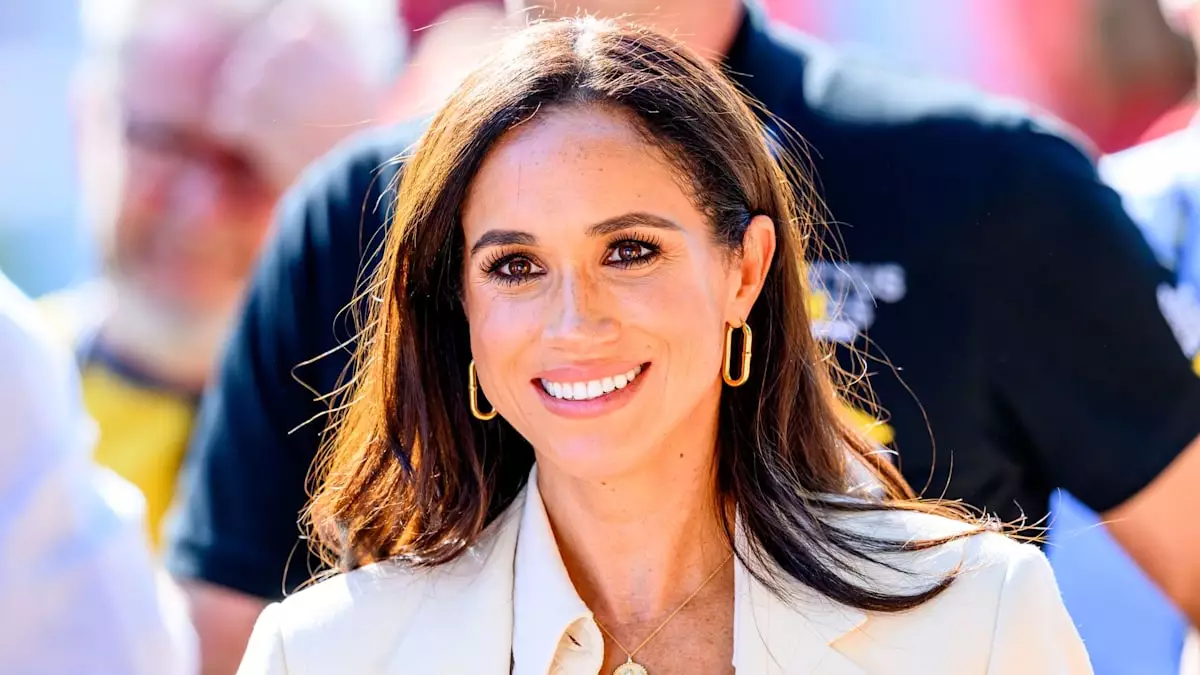On Valentine’s Day, Meghan Markle shared a heartfelt moment with her fans that offered a glance into her personal life with Prince Harry. While the social media post was grounded in affection, referring to Harry simply as “my love” and “my Valentine,” it was her unexpected commentary about food that truly captured attention. The image showcased the couple enjoying an indulgent meal, with Markle declaring her fondness for classic comfort foods like burgers and fries. Her lighthearted tribute to fast food starkly contrasts her historical dedication to healthy eating, sparking conversations about her diet choices.
Markle’s documented approach to nutrition has primarily emphasized health and wellness. In past interviews, she has advocated for a conscientious diet, which leans towards veganism during the week, allowing for greater freedom on weekends. This balanced perspective reflects a lifestyle philosophy rather than a strict dietary regimen. The shift from a primarily plant-based diet to including comfort foods on occasion underlines an important concept in the realm of health—flexibility.
To gain further understanding of this dietary approach, nutritionist Raquel Monroy was consulted. Monroy emphasizes that a well-structured vegan diet can be incredibly beneficial. It is packed with nutrients derived from whole, unprocessed foods—vital in promoting good health. The inclusion of fruits, vegetables, nuts, legumes, and seeds can enhance one’s intake of antioxidants and vital vitamins while supporting sustainable health practices.
What stands out in Markle’s admission is the embrace of balance. Monroy points out that reintroducing animal products like fish or meat can be advantageous in meeting essential nutrient needs that could be lacking in a purely vegan diet. These include vital elements such as vitamin B12, omega-3 fatty acids, and iron, demonstrating that moderation might enhance nutritional completeness. The essence of Markle’s philosophy seems to steer away from deprivation, firmly planting the idea that sustainability in diet comes from variety and personal satisfaction.
Moreover, Markle’s reflection that dieting should never lead to feelings of deprivation touches upon a significant psychological aspect of eating. Monroy concurs, noting that a relaxed and flexible approach to food not only alleviates the potential for binge eating but also contributes positively to mental well-being. She believes that the optimal dietary path allows individuals to adapt according to their health objectives, while still respecting their personal preferences and ethical beliefs.
Interestingly, Markle’s views provide a fresh perspective in a world often filled with rigid dietary trends. The cyclical nature of strict eating plans can lead to unhealthy relationships with food, a sentiment Markle seems to effectively combat through her lifestyle model. Her statement—that one must not feel deprived—suggests an evolution of how we perceive and engage with our food choices. This idea reinforces the notion that long-term adherence to a healthy lifestyle stems from making enjoyable and realistic dietary choices.
With Markle’s lifestyle brand, “With Love, Meghan,” poised for an upcoming launch, it will be fascinating to observe how she incorporates her relaxed and balanced dietary philosophy into her endeavors. The attention to food not being merely for sustenance but for enjoyment could resonate with many seeking a sustainable approach to health and wellness.
In an era where diet trends often dictate extreme measures, Meghan Markle’s nuanced perspective promotes an essential dialogue on the importance of balance, joy, and sustainability in our nutritional habits. She is an advocate for a flexible lifestyle that prioritizes not just health, but also happiness accompanying our dietary choices. By sharing her experiences and celebrating food in all its forms, Markle might inspire her following to rethink their own relationships with food and diet, steering them towards more mindful and pleasurable eating practices. In the end, the best approach to food appears to be one that enriches our lives, celebrates diversity in our diets, and ultimately aligns with our personal values and tastes.


Leave a Reply